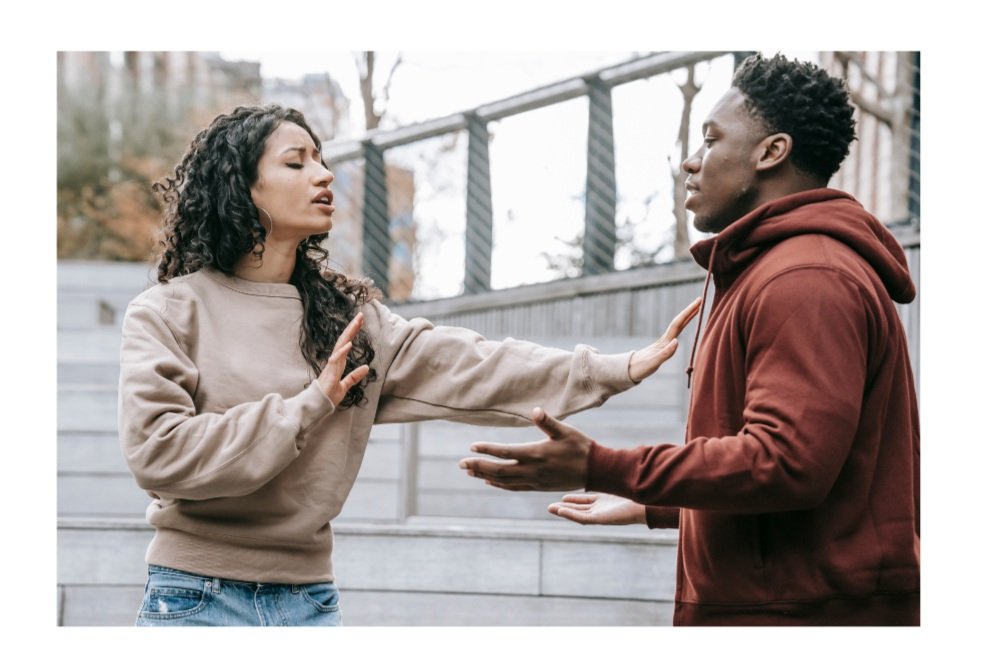Are You Protecting Your Peace or Avoiding Conflict?
Photo Cred: Keira Burton
Do you often hold your tongue for the sake of keeping the peace? Are you the one who is always trying to maintain harmony, earning nicknames like "the diplomat" or "the Aaron Burr" of your group? If you find yourself saying "no drama" is your mantra, you might be playing the role of a peacekeeper in your life. While this stance can seem beneficial on the surface, it can have negative effects in the long run.
Why Do We Do It?
As a trauma and anxiety therapist, I frequently see peacekeeping and people-pleasing behaviors as trauma responses. This often involves engaging in the fawn response, a reaction to perceived threats where one tries to appease others to avoid conflict. It might also be a result of a lack of skills in healthy conflict resolution, which many families do not model. Often, the loudest or most dramatic person in a family or group can dominate interactions, using intimidation rather than interpersonal skills.
From an Internal Family Systems perspective, the peacekeeping part of you might be working in a protective role. It could be shielding you from the stress of conflict or trying to maintain the status quo. While peace is a desirable state of being, overdoing peacekeeping can disrupt the balance of your internal system. When peacekeeping behaviors become habitual, they often stop serving you and trap you in a cycle of avoidance and accommodation.
Characteristics of a Peacekeeper
Peacekeepers often:
Avoid conflict at all costs.
Delay dealing with issues, big or small.
Fear not being liked or having difficult conversations.
Address the results of conflicts, not the underlying causes.
Strive to keep things calm, preventing conflicts from escalating.
Play it safe, maintaining the status quo.
Consequences of Keeping the Peace
While peacekeeping can temporarily ease tension, it often leads to long-term consequences, such as:
Feeling used or taken advantage of.
Maintaining the status quo without addressing real issues.
Experiencing anxiety in social and familial interactions.
Feeling bitter, resentful, or angry.
Engaging in one-sided relationships.
Neglecting your own needs.
Feeling drained by interactions.
Why Understanding This Difference Matters
It’s crucial especially those who have been praised for people-pleasing and peacekeeping, to understand the difference between these roles. Many have been conditioned to believe that maintaining peace is the easiest route and that it earns them approval. However, this can lead to a lifetime of patterns that no longer serve them, causing them to shrink themselves and avoid setting boundaries.
Understanding the motives behind people-pleasing and peacekeeping is essential, particularly for women dealing with trauma and anxiety. Often, these behaviors are rooted in trauma responses aimed at keeping us safe. Recognizing this allows us to question whether our actions are truly serving us.
Choosing yourself and centering your needs is crucial. Engaging in people-pleasing behaviors often leads to codependency and further impacts your mental health. By understanding these dynamics, you can break free from these patterns and make choices that truly benefit you.
In therapy, we work on building awareness and mindfulness of these behaviors. It’s about recognizing that while peace is valuable, avoiding conflict at the expense of one’s needs is unhealthy. Learning to set boundaries and assert your needs can lead to more fulfilling and balanced relationships.
By exploring these themes, we can better understand the difference between protecting your peace and avoiding conflict, and how to make choices that truly support your wellness.
